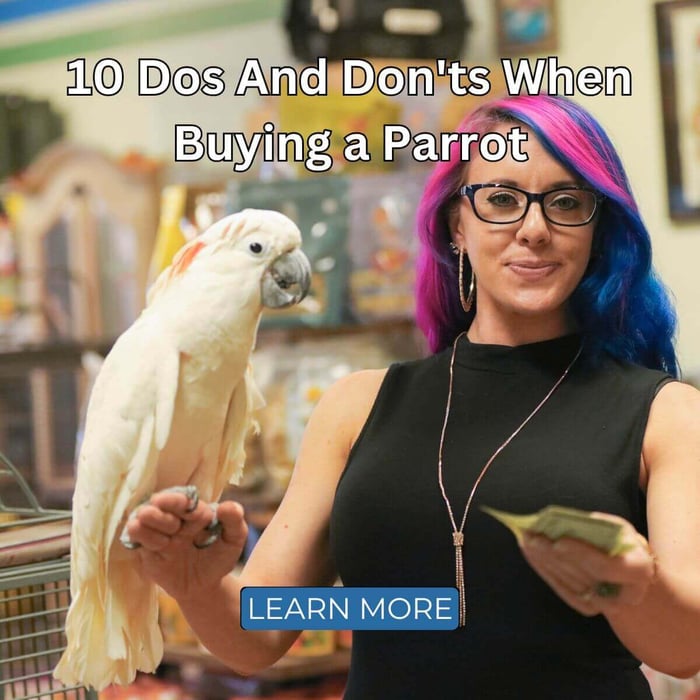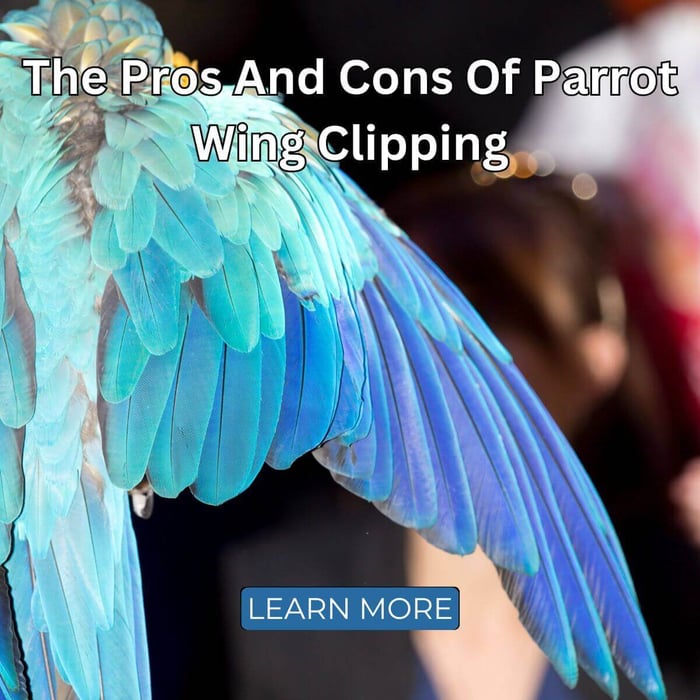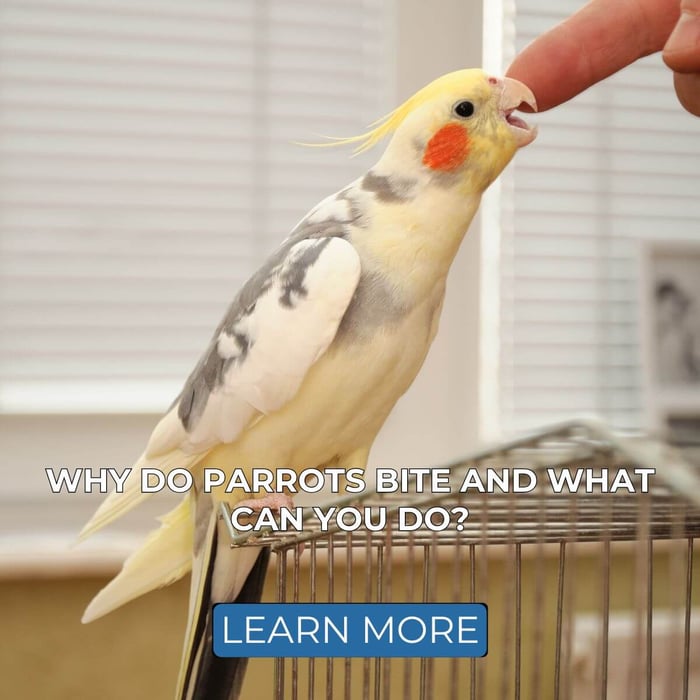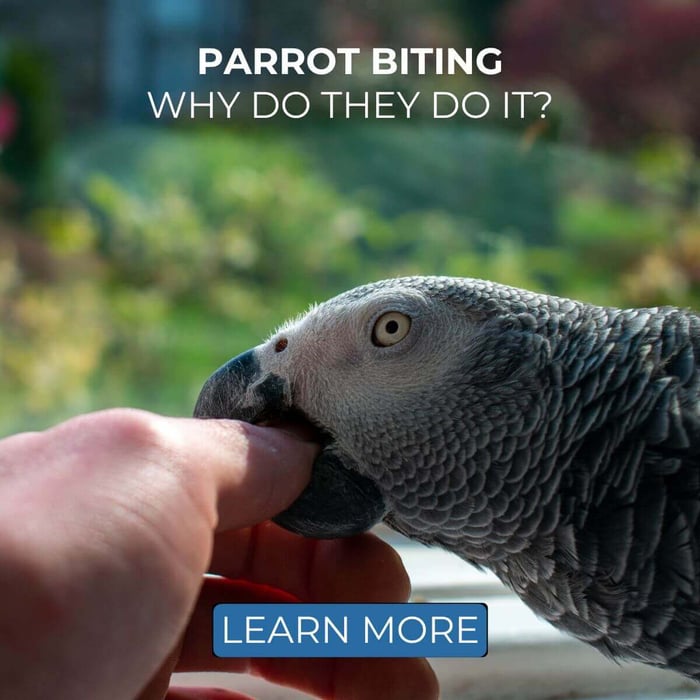Parrot Biting - How to Prevent It?
What should you do if your new parrot turns out to be a biter? Or if your previously loving feathered friend suddenly seems to take a dislike to you? Parrot biting is a frustrating thing, but luckily, with plenty of patience, the issue can usually be resolved.
Let’s go into parrot biting and what you can do to stop it and prevent getting chomped.
Parrot biting: Why do they do it?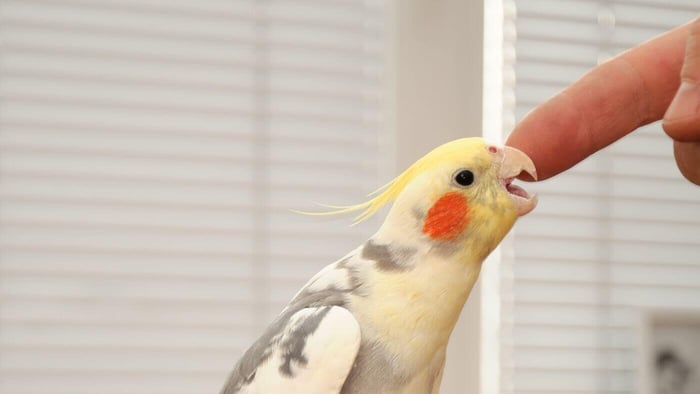
Obviously, when you’re having an issue with your parrot, the first step is understanding the why. There are plenty of reasons a parrot might bite: fear, discomfort or even habit.
Before attempting to resolve this undesirable behaviour, try putting yourself into your bird's head first. We recommend starting out with the article on why parrots bite to get a better understanding of their reasons.
Parrot biting: Resolving & Preventing.
Once you’ve got an idea of why your parrot might be biting, it’s time to start working on resolving the issue. After all, not only do you run the risk of injury from their powerful beaks, but biting is also an indication of discomfort in your bird.
The most important thing to remember is that you cannot punish a parrot through negative reinforcement. They don't understand why they're being punished, and unwanted behaviours will only become more frequent as a result. Instead, work on adjusting behaviours through positive reinforcement. We know it’s hard to stay patient sometimes, but don’t give up!
Tip: The first thing you should do is ask yourself whether something in its environment is causing your parrot discomfort. Is there anything that might be scaring it? Could your bird be ill or just moulting? Is its cage too small, or is it not getting enough attention? All of these are very important questions.
Here are some things to keep in mind while you train your parrot:
- Stay calm. Pulling back or yelling out when your parrot bites will often only serve as motivation. Instead, ignore the behaviour and put your parrot down. Don’t stuff it in its cage, though, or it might start perceiving its home as a negative place.
- Don’t force it. Ever. If something doesn't work, try a different approach. For example, try training your parrot to step up on a stick if it appears your hands are the problem, and then work on the hand issue slowly.
- Read body language. Many parrots, when they're about to go for the chomp, will ruffle their feathers, quickly dilate and expand their pupils or lunge as a warning.
- Be mindful of your own behaviour. How are you approaching your bird? You might unintentionally be approaching it in a threatening manner or overstimulating it.
- Understand parrot interaction. It can be difficult to remember that a parrot is not a dog or cat. Teasing and rough play are out of the question, and most birds don’t like to be manhandled. You should respect this.
- Be positive. Your parrot should see you as a positive aspect of its life and be happy to see you. Offer a small treat every time you approach the case, provide plenty of playtime and maintain a steady hand in training. And don’t forget the shredding toys to redirect that bitey energy!
Remember: It’s essential you don’t give up. You’ll still have to offer out-of-cage time and interact with your bird. If you just stuff it away in its cage, aggressive or fearful behaviours will only escalate.
Conclusion
The tips above make resolving parrot biting sound pretty easy, but remember, this is a process. It’s all about slowly creating positive associations.
With plenty of time, patience, and possibly some measures to remove discomfort due to environmental or health-related causes, you and your bird will hopefully learn to understand each other better.

